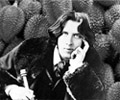|
HelloIAmYourHeart posted:I really enjoyed The Terror, but I thought the supernatural element was complete bullshit and pretty unnecessary (I also really dislike how Simmons writes female characters and sex scenes, ugh). The characterization in the novel is good, to the point that I now imagine Simmons's characters whenever I read anything about the Franklin Expedition. And I found the Nice Respectable Gay Character hilarious - oh no, I've got villains who are having sex with each other! I must shoehorn in a nice monogamous gay who doesn't have sex with anyone on board so I don't seem prejudiced! Ahem. It's a pity, because there is a lot about it that's really good, it's just that there's so much stupid too. If he'd stuck to the expedition falling apart rather than the big dramatic Arctic monster, or even kept it offstage more, it would have been so much better. If anyone wants good Arctic supernatural horror, they want Michelle Paver's Dark Matter - it's superb, and properly scary. A just-pre-WWII scientific expedition heads up to Spitzbergen to spend the winter, and decides to do it in the isolated place all the locals roll their eyes and mutter about because SCIENCE. Paver's apparently a nut about Polar expeditions and it shows - she does a really convincing job with the day-to-day expedition stuff as well as the gradually-growing haunting.
|
|
|
|

|
| # ? Apr 19, 2024 22:13 |
|
Runcible Cat posted:You know as soon as he makes a big thing about the girl they find being a ~virgin~ that the protagonist's going to end up banging her. God forbid he boldly go where some manky old shaman's been before, eh? He was even creepier with this kind of poo poo in the Endymion books. That and his weird future Islamofascist "short story" warning thing pretty much put me off him for good.
|
|
|
|
Apparently Project Gutenberg has some of John Franklin's journals as ebooks: http://www.gutenberg.org/ebooks/author/5108
|
|
|
|
Recent article about the discovery of Erebus, Franklin's ship. The discoverer will give a talk in December in London. Would be great if any poster managed to attend that and give us a run down of what the latest findings are. http://www.theguardian.com/science/2014/nov/02/secrets-of-john-franklins-doomed-voyage-north-west-passage
|
|
|
|
Josef K. Sourdust posted:Recent article about the discovery of Erebus, Franklin's ship. The discoverer will give a talk in December in London. Would be great if any poster managed to attend that and give us a run down of what the latest findings are.
|
|
|
|
Today's Wikipedia featured article is Carsten Borchgrevink: http://en.wikipedia.org/wiki/Carsten_Borchgrevink His exploration in the Antarctic (1899-1900) is covered by some of the Huntford biographies and Fleming's book on polar exploration (both briefly).
|
|
|
|
I've been on a big polar literature kick the past few years, and actually work at a local polar museum. We have the largest polar library in the country, and I've gotten the chance to work my way through a lot of it. I've read most of what has been posted here so far, but wanted to mention a few that have stuck out to me. Weird and Tragic Shores: The Story of Charles Francis Hall, Explorer by Chauncey Loomis. A biography of American explorer Charles Francis Hall, who led the ill-fated Polaris expedition, it's an interesting glimpse into a very driven, likable, and somewhat hapless figure. The author of the book received permission to exhume Hall's grave, and managed to shed some light on the mysterious circumstances around his death. The Ice Balloon by Alec Wilkinson wasn't particularly impressive, I felt the author didn't provide a decent explanation to the expedition members' deaths; he discounted trichinosis in the space of a sentence. Otherwise it was an interesting intro to the subject, and seemed to go out of it's way to counter some of the more critical analyses of Andrée. The Last Voyage of the Karluk by Robert A. Bartlett and Karluk: The Great Untold Story of Arctic Exploration by William Laird McKinlay are both first person accounts of the Karluk disaster, and are a fast read. In many ways the story parallels Shackleton's Endurance, but with the difference of the expedition's leader, Vilhjalmur Stefansson (who was basically an Iceland-weeaboo), being singularly uninterested in leading. Both are highly recommended. The First Crossing of Greenland and Farthest North, both by Fritdjof Nansen, are good, albeit self-serving as hell. It's interesting seeing the level of planning Nansen puts into things, and the way the [i[Fram[/i] is described it comes off as more space station than ship. I had the chance to visit the [i[Fram[/i] this last summer, and it was absolutely worth it. I'm almost finished with Den Tredje Mann: Beretningen Om Hjalmar Johansen by Ragnar Kvam, and can't recommend it enough. It gives some great insights into an otherwise overlooked figure in Norwegian exploration. Right now it seems to be only available in Norwegian. I've got a few more recommendations, but those are more focused on Inuit and indigenous arctic people, so this may not be the place for them.
|
|
|
|
About to start Roland Huntford's Nansen, so far I've been really impressed by the level of detail in his other work. New Year's question: Who was the first person to the North Pole? Debate that poo poo.
|
|
|
|
^ Added your recommendations. Will be interesting to get your opinion on "Nansen" (cool avatar, btw). It is the only Huntford bio I haven't read. Do you think Mrs Scott had an affair with Nansen? That was a fairly controversial assertion. Huntford's bios are controversial in Britain because Scott was a hero 1912-1980 and is still considered a hero by many. Personally, I am pro-Shackleton and Amundsen, though I concede they had failings. But Scott was the better diarist though.... As for the North Pole.... I will have to go with Nobile and Amundsen in an airship - if Byrd didn't get there first. Definitely not Cook and almost certainly not Peary.
|
|
|
|
Why is this not in the OP?
|
|
|
|
I've got a copy of The Ice Balloon but haven't gotten around to reading it yet. I did really like The Balloonist by MacDonald Harris, which is a novel inspired by that expedition. It's a dense read that skips around between the journey and the main character's halting attempts at romance, but it's basically meant to be the guy's diary as he's realizing what he's led them to. And some of the jumps that seem disjointed at first make a little more sense as the book goes on. The protagonist is interesting without being very sympathetic, but towards the end of the story some of his lies feel like a kindness. I like reading about the Scott expedition, and it's frustrating when authors refer to him like he's some epic idiot. It's fair to point out his mistakes, but some of the criticism has been overly harsh (especially considering that people seem quick to blame Scott for decisions made by others back at his base camp). I guess that when it comes to exploration stuff, I think tragedies are more thought-provoking than overwhelming successes. Amundsen's accomplishment was really impressive. He's just so dull for me to read about. I'm also not as interested in the guys whose only interest was getting into the record books. I know everyone wanted the poles, and everyone wanted to be first. But I prefer the gloryhounds who also wanted to increase our knowledge of an area to the ones who clearly didn't give a poo poo about that.
|
|
|
|
Here is a link to Parks Canada's page about the discovery of Franklin's ship, with video: http://www.pc.gc.ca/eng/culture/franklin/index.aspx Here is a link to page of historical Franklin books which are print-on-demand: https://cambridgelibrarycollection.wordpress.com/2014/09/10/16-books-related-to-sir-john-franklin-you-need-to-read/ Josef K. Sourdust fucked around with this message at 13:10 on Jan 7, 2015 |
|
|
|
deety posted:I like reading about the Scott expedition, and it's frustrating when authors refer to him like he's some epic idiot. It's fair to point out his mistakes, but some of the criticism has been overly harsh (especially considering that people seem quick to blame Scott for decisions made by others back at his base camp). I guess that when it comes to exploration stuff, I think tragedies are more thought-provoking than overwhelming successes. Amundsen's accomplishment was really impressive. He's just so dull for me to read about. I'm also not as interested in the guys whose only interest was getting into the record books. I know everyone wanted the poles, and everyone wanted to be first. But I prefer the gloryhounds who also wanted to increase our knowledge of an area to the ones who clearly didn't give a poo poo about that. Huh, well... I agree that Scott is a better writer and a more attractive subject for stories etc. But would you have preferred to be part of Scott's team or Amundsen's? I don't agree with you saying that Scott should not be blamed for decisions at base camp (I presume you mean about relief missions to and beyond One Ton Camp). The issue is not that Cherry Garrard was poorly equipped to lead a rescue (true) and that he should have pushed on (perhaps, see later) but that he should never have been put in that position. Teddy Evans should never have been punished by doing extra marches when he would have been ideal to save and lead a recovery party. Scott delegated poorly and so confused the issue. He handled logistics appallingly (four types of transport for the polar trip? seriously?) and prepared badly. He refused to allow subordinates to make their own decisions, was vague about essential issues and was overall rather fatalistic about planning. In other words, he was the exact opposite of Amundsen. The thing that grates with the attempts to resuscitate Scott in recent years is stuff like "oh he hit a particularly cold year and that is why he never made it back". Well, firstly, there was insufficient weather data, so polar explorers should never have made assumptions about coldness on plateau or ice sheet. He should have been cautious and conservative. Secondly, he left himself no margin for error in terms of timing and supplies. Any obstacle he encountered left him dangerously exposed to failure. It was his failure as a leader that meant when bad luck hit, the polar party had no way to recover. It doesn't matter what his luck was. If he was so lazy and slack in so many ways that meant that bad luck was dangerous. His weather was the same as Amundsen's (largely) and better than Shackleton's. If he had used dogs he would have been there and back before the fatal blizzard. Amundsen's team put on weight as Scott's was losing weight and experiencing scurvy. Summary: If Scott had wanted to sacrifice himself on a trudge to the Pole that is his own look out but to kill four other men because he was too incompetent and lazy to prepare properly? No. That's unforgivable (but more exciting to read about). Sorry for venting. Nothing personal.
|
|
|
|
No worries, I think it's just a difference in our basic outlooks. I approach things like this from more of an emotional response kind of place than a logical one; I can't look at that kind of situation and judge it based on which team I'd rather have been a part of. The story of Our Poor Doomed Heroes is just far more interesting than the story of some guy who's plan worked really well, especially because I appreciate Scott's overall approach in terms of actually doing research in the area more than Amundsen's pure focus on achievement. Society learned a lot about these environments from all the folks who failed to make it before Amundsen got there. He benefited from that knowledge without really caring to contribute to it. And some of the anti-Scott claims that I've come across again and again may not hold up, they feel a little like just-world stories about how, since he died, then he must have somehow deserved it. It's all a little strange to me because I rarely see the same level of vitriol expressed towards other deadly expeditions. I guess it's pushback against how he was so idolized at first? Skepticism is important, and the North Pole shenanigans were a good lesson in that. But we also shouldn't be so quick to blame Scott for every poor decision made by every person on the team, especially considering that the base camp survivors naturally had an interest in looking as if they did everything possible once the worst happened. Sure, Scott could have planned better. He should have made some better decisions in the field. They should have left the samples when things got dire; someone could have gone to recover them later. But I also believe he had some rotten freaking luck along the way, and I'll never like the idea that he got as far as he did by being some reckless, thoughtless idiot. My other big nonfictional interest is shipwreck stories though, and luck plays such a huge role in those that I'm probably more inclined to be sympathetic to it as an argument.
|
|
|
|
Interesting link, though it comes down to interpretation of Atkinson's actions. But the essential point is: Scott wouldn't have needed rescuing at all had his depots been more generous, his team smaller (he added an extra 5th member at the last moment - why? something that almost killed Teddy Evans' party) and if he had travelled faster. A relief party from one Ton Base , yes , sure - but why the need to be rescued from before One Ton Camp? Scott's desire to do scientific work was genuine and he had the funding for it. Amundsen did not. Amundsen knew he could only do one thing - conquer the pole - and he did it. Scott's ambition also introduced serious divisions of priority which confused matters. There was conflict in the twin aims and twin teams. It wasn't efficiently handled. Scott did want to do science but to be honest, he might not have got the funding for an expedition without funding, so how much of that was expediency and how much genuine, who can say...  Be aware that SPRI (the source of that story) have dedicated their organisation to excusing Scott, downplaying Amundsen and Shackleton and villifying Huntford, Scott's most critical biographer. In the SPRI website's bibliography they entirely avoid any mention of Huntford. Yes, I think part of the criticism of Scott is that fact officially in Britain Scott was regarded as a hero and Shackleton as a failure and Amundsen as a dastardly foreigner. But also some of the anger that I feel is because of SPRI's campaign against Huntford. I do have a huge amount of sympathy for Scott - I think he was an entirely unsuitable leader who was pushed by circumstance and his wife towards a career in polar exploration. He does have good qualities but as an explorer he was a failure, imo.
|
|
|
|
I think calling him a failure is unnecessarily harsh. He made it there after all, and they came very, very close to getting back. I guess differing opinions are what make the subject interesting. Of course we shouldn't accept new research without question, but it was a peer reviewed paper and it sounds like they found documentation of a written plan calling for heavier use of the dog teams. That journal has a pretty clear agenda, but that doesn't mean the anti-Scott crowd is perfectly objective either. Both sides seem solidly entrenched at this point. It'll be interesting to see how later books interpret the findings. I definitely sympathize with one side more than the other, but it's a good story either way. All the follow-up drama is fascinating too.
|
|
|
|
Well, his expedition got mixed results (scientifically valuable, technologically a failure, exploration wise semi-successful) but he was unsuccessful in his attempt to conquer the pole because he came second and died returning. After all, don't they say that mountaineers are unsuccessful if they summit but die on the return? Yes, I probably have been a bit harsh. I'd love to know what other posters think. Content: Here is a new article on a passenger jet that smashed into an Antarctic volcano. Yes, you read that correctly. http://www.independent.co.uk/news/w...=internalSearch For context: http://en.wikipedia.org/wiki/Air_New_Zealand_Flight_901
|
|
|
|
Here is Cambridge University Press's list of print-on-demand titles about polar exploration, 238 titles: http://www.cambridge.org/gb/academi...storic%2Btitles I read a few in this series and they are good quality reprints.
|
|
|
|
Runcible Cat posted:
Also, the book's about 500 pages too long. Does Dan Simmons get paid by the word, or something? all his books are over-long like that!
|
|
|
|
Umiapik posted:Also, the book's about 500 pages too long. Does Dan Simmons get paid by the word, or something? all his books are over-long like that! I liked the Inuit myth stuff but it could have been presented a lot better. After I finished the Terror I thought it would have been pretty cool to have a novel about these Arctic expeditions (or even the Norse in Greenland/Newfoundland) where the Inuit are the protagonists.
|
|
|
|
bartlebyshop posted:I liked the Inuit myth stuff but it could have been presented a lot better. After I finished the Terror I thought it would have been pretty cool to have a novel about these Arctic expeditions (or even the Norse in Greenland/Newfoundland) where the Inuit are the protagonists. I read the first Edie Kiglatuk novel last month. They're a modern day detective series but the protagonist is an Inuit woman who works as an Arctic guide. Umiapik posted:Also, the book's about 500 pages too long. Does Dan Simmons get paid by the word, or something? all his books are over-long like that! He just loves going on tangents on whatever subject he's most passionate about at the time. It took me forever to get into Abominable cuz it starts off with so much stuff about mountain climbing before the plot has a chance to kick into gear. It was good once it did get to Mount Everest though. People who love Arctic type settings and expedition survival stories would probably like this for a lot of the same reasons.
|
|
|
|
Try to catch Jon Krakauer's INTO THE WILD, a fascinating study of a young man attempting to live off the land in Alaska, while the audiobook is up on YouTube. I knew the book when the thread started but I forgot to add it to the OP. It's a great story. I don't know the movie to speak of, but the book is very interesting. Catch it here: https://www.youtube.com/watch?v=d0jRmj0uaWI
|
|
|
|
Reading The Worst Journey in the World right now and had to ban myself from reading anything else about the Scott Expedition at the same time, for fear of spoilers. I know, I know, we all know the ending in advance - but I don't know exactly who did what and exactly when they died, and all those little details, and I want to maintain the artificial suspense. In any case, after I'm through I plan to read Scott's journals next, and then Shackleton's South, and probably some more recommendations from this thread. I've read some of them before (notably Arctic Grail, which I thought was excellent) but there's plenty more I haven't. Has anyone here read Sara Wheeler's Cherry, and is it worth looking for? I've grown very fond of him over the course of these terrible journeys.
|
|
|
|
pookel posted:Reading The Worst Journey in the World right now and had to ban myself from reading anything else about the Scott Expedition at the same time, for fear of spoilers. I know, I know, we all know the ending in advance - but I don't know exactly who did what and exactly when they died, and all those little details, and I want to maintain the artificial suspense. In any case, after I'm through I plan to read Scott's journals next, and then Shackleton's South, and probably some more recommendations from this thread. I've read some of them before (notably Arctic Grail, which I thought was excellent) but there's plenty more I haven't. I haven't read the Wheeler bio. Reading the bio notes in his own book it sounds like he had a strange and rather unsettled life after 1912 and that he was haunted by the events. If you can, get the new edition of Scott's diary. It shows him as a more complex character and not the saint he was made out to be. I actually warmed to him more in the "warts and all" version. I think there is also a good bio of Wild that was published about 5 years ago. Keep us updated! 
|
|
|
|
I would guess that I don't have a "warts and all" edition, as I'm reading whichever one is free on Amazon because it's out of copyright. He doesn't seem like much of a hero here, either, tbh. Overall, I'm left with the impression of a guy who was genuinely brave, hardworking, intelligent and creative - as opposed to Amundsen, who was an actual professional who knew what the gently caress he was doing. Scott also reminds me of all the climbers who die on Everest - they don't prepare adequately for the climate, they don't carry the right equipment, and they expend too many resources forcing themselves up to the summit. Then they die on the way back down of cold, exhaustion, exposure, etc. And you just shake your head and wonder if it was really that important to get to the top of the mountain.
|
|
|
|
Hmm. I read the play The Frozen Deep earlier this year. It's a drama penned by noted Victorian novelists Wilkie Collins and Charles Dickens that is centered around a failed Arctic expedition. So it's brief (because it's a play) and free because its public domain. Also, Collins later wrote a novella based on the play (which I have not read). After reports from Inuit witnesses in 1854 that members of the failed Franklin expedition (departed 1845) resorted to cannibalism, England as a whole apparently reacted in angry, stiff-upper-lip disbelief that its countrymen would ever partake in such ghastly, unchristian behavior. Dickens was motivated to write the play as a response. (He also lashed out in a pique of racism against the Inuit character, writing: "We believe every savage in his heart covetous, treacherous, and cruel: and we have yet to learn what knowledge the white man—lost, houseless, shipless, apparently forgotten by his race, plainly famine-stricken, weak, frozen and dying—has of the gentleness of Exquimaux nature." So, uh, there's that.) So it's a play in some measure illustrating how England wanted to believe its citizens would react upon finding themselves trapped and starving in a failed arctic expedition... Pip pip! Wizchine fucked around with this message at 07:32 on Apr 26, 2015 |
|
|
|
Now I'm imagining a version of the Scott story in which Oates made a very different sort of sacrifice, and three more men survived.
|
|
|
|
pookel posted:I would guess that I don't have a "warts and all" edition, as I'm reading whichever one is free on Amazon because it's out of copyright. He doesn't seem like much of a hero here, either, tbh. Overall, I'm left with the impression of a guy who was genuinely brave, hardworking, intelligent and creative - as opposed to Amundsen, who was an actual professional who knew what the gently caress he was doing. Yes, that'll be the genteel version. I don't think that many deletions were made, so you are getting a fairly rounded view. I agree with you completely about the Everest analogy. Scott was a glory hunter and once there was no glory to be had he lost a lot of heart and began to view tragic demise as preferable to life as a cripple and a "failure". A number of writers have imagined Oates's ending as the result of not dying due to a deliberate morphine overdose the night before. Reading between the lines, it seems Oates took morphine the night before in order to end it but not enough apparently and his suicide by hypothermia was the only way to do himself in that was "manly". He did also think that his death would help his companions survive by allowing them to go faster and use his rations. Apparently Scott was worst off at the blizzard stage. Bowers and Wilson could have got to 1 ton camp but he persuaded them to stay and die - probably not directly asking but by refusing to go with them and thereby forcing them to stay.
|
|
|
deety posted:He's just so dull for me to read about. He's not that dull: http://www.nfi.no/english/norwegianfilms/search/Film?key=43612
|
|
|
|
|
pookel posted:Now I'm imagining a version of the Scott story in which Oates made a very different sort of sacrifice, and three more men survived. The extra food would have maybe helped a bit, but they were still facing a fuel shortage and resulting dehydration/popsicling. I'm reading a book by Swedish doctor/author Bea Uusma called "The Expedition:A Love Story" about the Andrèe expedition, it's well written but suffers from her tying her own story with the expedition itself, it feels a bit self indulgent. Jävlar svensk. She did some interesting forensic work on artifacts from the expedition, including a thigh bone residing at my museum. She theorizes that the expedition members were killed by polar bears, but as usual there's opposition from every other theory. I spent a week this April doing a training ski tour in Northern Sweden, with an aim of replicating late spring conditions in Svalbard. It was a very cool experience, during the trip I was reading "The Lost Men: The Harrowing Saga of Shackleton's Ross Sea Party" by Kelly Tyler-Lewis, and it made any bad weather/rough conditions we faced feel pretty drat minor. Does anyone else have that problem where when reading about the effects of scurvy you find yourself subconsciously selecting more vitamin-rich foods?
|
|
|
|
Free Market Mambo posted:Does anyone else have that problem where when reading about the effects of scurvy you find yourself subconsciously selecting more vitamin-rich foods?
|
|
|
|
Meanwhile Avataq the Inuit is chewing on some narwhal blubber all "get hosed kabloona"
|
|
|
|
Oh, how was "The Lost Men"? I just put that on my reading list. (I'm reading Scott's diaries now, but it's slow going getting through his whining.)
|
|
|
|
Really good, it was interesting reading it after Huntford's Shackleton bio, which didn't really touch on that aspect of the expedition at all. It did an excellent job of explaining the role that cultural and class differences within the British Empire effected expeditions and the way things were handled. The English tended to be extremely focused on the public perception of an expedition and downplayed any and all conflict, while colonial expedition members were much more blunt and direct in their criticism of perceived failings. Also, the sheer amount of effort that the Ross Sea party put into their work was amazing. They were stranded, with only a few supplies and the leftover's of the Terra Nova Expedition to work with, and they managed to A-Team together the means to lay a series of caches for Shackleton's Weddell Sea party journey from the pole. To have all that effort and hardship turn out to be for nothing just had to have been heartbreaking.
|
|
|
|
a man falls back in time and into the Northwest Passage. taking a blubber lamp from the wall he spies row upon row of scurvy-stricken Englishmen. grasping the nearest by the shoulders, he shakes it madly, yelling "my jacktar have u tried vitamin C"
|
|
|
|
I've been wanting to get back into Arctic/Antarctic stuff! I noticed that The great white South; being an account of experiences with Captain Scott's South pole expedition and of the nature life of the Antarctic by Herbert Ponting hasn't been listed yet (you can find physical copies for sale online as well but they might have a slightly different title). It's the only primary source I've read so far about Antarctic exploration but it's a fun read and it also has a nice selection of Ponting's photographs of the expedition in it. Basically, Ponting was the official photographer for the Terra Nova Expedition and he writes like you'd expect a young, relatively wealthy and pretty oblivious English, jet-setting (boat-setting?) ponce to write. Most of the book is about what life at the main base camp was like and filled with riveting tales like "Penguins don't know what a potato is", "That time I almost got eaten by a killer whale", and lots of "DID I TELL YOU ABOUT WHEN I WAS IN JAPAN" as well as other mishaps (Ponting almost got a lot of people killed accidentally), and what a lot of the scientists and others were doing down there. He spends some time toward the end of the book talking about what happened to Scott, and I expect it would be retreading a lot of ground for those of you who have read more about that particular subject. But the bulk of it is about day-to-day life on the trip there, and at the camp itself which I found really interesting.
|
|
|
|
First up, really good article on the Andree Arctic balloon http://www.damninteresting.com/andree-and-the-aeronauts-voyage-to-the-top-of-the-world/ Secondly, an old article discussing why Huntford's biographies of Scott and Shackleton were so controversial: http://www.theguardian.com/books/2008/dec/27/interview-roland-huntford Thirdly, posting an interview with Roland Huntford, which was posted on the GBS Evereat thread: You made a reputation taking apart the Scott legend. But if he was so incompetent, how did he become a national hero? In Britain there is a tradition of admiration for the glorious failure, a Nelsonian idea of death in the hour of triumph. The other thing is a streak of morbidity. People love a good death, so Scott's story appealed to that undercurrent. But Scott's diaries are eloquent, poignant... People say he's eloquent. I find his writing appallingly maudlin and self-regardant, almost pathologically inward-looking, a bit like Lawrence of Arabia. In Scott's diary there's self-pity and comments about poor luck with the weather. I read Amundsen and much prefer his writing. Scott's diary is designed to make things seem heroic; Amundsen underplays things: there's underlying humour, irony, self-deprecation. Returning to Scott, I thought, "oh no, not more of this romanticised trash". So why do most people only remember Scott? For British people, Amundsen was a foreigner, whom you don't celebrate. He beat our man and I think that is resented. There's been a tortuous effort to show Scott was the real winner because he suffered and died - he's the sacrificial hero. People feel that when someone does something very competently and, even worse, plays it down, it is somehow cheating. What do you say to the criticisms of explorer Ranulph Fiennes, who says you can't judge Scott as you have never been to the South Pole? I've not been to Antarctica, but I've got a background of Nordic skiing - I've been skiing for longer than I care to remember. When I read Scott's Last Expedition I thought, what's he going on about, moaning about the snow? He's describing perfect snow for skiing. People like meteorologist Susan Solomon also disagree with you about Scott... Solomon belongs to the school that says but for the weather, Scott would have got through. But there's a saying in Scandinavian countries that there is no bad weather, only bad clothing. It is much easier to protect yourself against the cold than heat - as warm-blooded creatures, we are walking furnaces, so all we need is proper insulation. If Scott's party had worn fur, there would have been no problem. But there was a lingering belief that civilised men didn't use furs - they were for savages. It was OK to use reindeer fur in sleeping bags but not for clothing. Amundsen, however, understood the Inuit, learned from them, and wore fur clothing. What were Scott's biggest mistakes? His first mistake was to depend on hauling sledges by foot. This is idiotic, because it is slow and tortuous. But even allowing for that, he could have still survived had he arranged his food depots at intervals which were adjusted to manhauling - which he didn't. On 13 February 1912, during his return, he nearly ran out of food. He wrote: "In future food must be worked out so... we do not run so short if the weather fails us." I am still outraged when I read this. There was no margin of error. When he was returning, it was a case of march or die. Did Scott know they weren't going to make it? Scott's letters and diary, written in language eerily like Peter Pan, read like a long suicide note. I don't think he could face failure, so it was a kind of suicide, lying down in the tent. The diary implies that expedition members Edward Wilson and Henry Bowers were ready to start for the next depot to fetch supplies. It was only 11 miles, but something held them back. Even if one accepts Scott's record of a continuous blizzard - which I don't, on meteorological grounds - it was a following wind. Other explorers, such as Amundsen, travelled gratefully in such conditions. By the mores of the time, if Wilson and Bowers had survived but not Scott, they would have been accused of deserting their captain and been socially dead. Scott's writing implies he was interested in his reputation, not the lives of his followers. He probably persuaded the two to wait on the grounds their records would be found if kept in the tent but not if they fell on the trail. Wilson's letter to Mrs Oates [mother of the team's Captain Lawrence Oates] hints tragically at such pressure, and that, left to himself, Wilson would have kept going. But Scott didn't just focus on the South Pole, he wanted to do new science. After all, his sleds were loaded with 15 kilograms of specimens when he died. Don't you have any sympathy? Not really. Five lives were lost out of sheer incompetence. This is a dreadful thing. Scott was putting records ahead of human lives. Science is not worth sacrificing life for.
|
|
|
|
Is there a good biography of the Duke of the Abruzzi that anyone here knows of? He sounds like a really interesting guy. It seems like every polar exploration/mountain climbing book I read includes the mention that he was there first, but didn't quite reach the summit/pole/etc., but such-and-such feature was named after him ... Just from Wikipedia, I've learned that he was born a prince of Spain, was an admiral in the Italian navy in WWI, lost two fingers in an unsuccessful South Pole attempt, set an altitude record on K2, gave a tank to the empress of Ethiopia which later played a key role in a coup attempt, and married a young Somali woman in his later years.
|
|
|
|
pookel posted:Is there a good biography of the Duke of the Abruzzi that anyone here knows of? He sounds like a really interesting guy. Well, if there isn't one there should be! I looked at the sources in the Wikipedia page and they all seem to be articles in magazines/journals. He did publish a couple of accounts of his North Pole attempt but these don't seem to have been translated. Fascinating character.... If anyone comes across a book on him I'll put the title in the OP.
|
|
|
|

|
| # ? Apr 19, 2024 22:13 |
|
OK, Amazon lists one: The Duke of Abruzzi: An Explorer's Lifequote:Grandson of the first king of Italy, Luigi Amedeo di Savoia-Aosta, or the Duke of the Abruzzi, was one of the most celebrated explorers of the early twentieth century. This biography vividly recounts not only the details of his pioneering expeditions but also the intriguing story of his personal life including a doomed love affair with an American heiress and his more successful friendship with Vittorio Sella. Adding to my wishlist.
|
|
|
























